The long night of old treacheries new alliances continues – even as the Collinsport Police Department finds itself once again investigating a series of multiple homicides. Along the utility access known as the Temperance Vale Road there has been yet another in a series of grisly decapitations. Local officials are becoming more restless – there is a need for suspects – any suspect, owing to the distinction each of the victims has not been a local, a native of Collinsport, but rather a tourist. Some of the townspeople have secretly begun to whisper, behind closed doors, over a bourbon or a beer, about the old Collinsport curse – the Collins Curse passed on as it is to the town. Murder and Sin. But upon this night there is one who is long accustomed to murder, and sin, who awaits the arrival of someone equally familiar with those unholy acts. For on this night of old treacheries and new alliances – there are secret alliances are even older.
Opening: [www.youtube.com]
Ilka was late.
Erzsébet Báthory lets the thin, threadbare drape fall back into place as she turns away now from the third floor window of the historic building, which had once been a boarding house, and then, a modest bread & breakfast . . . for a while, a highlight on the Collinsport Tourist Map of Places of Interest – until the inevitable deaths of the elderly owners who had died intestate. If not for the fact the three-storied building happened to stand on the corner of Collinport’s newly established Historic District – the municipal project started two years ago in order to preserve and in some cases renovate what the Collinsport Star had termed “the heart of the old village,” which ran along the designation marked by the dead-end of the cobblestones of Frenchman’s Lane to run eastward, until it met, to comingle, with Collins & Main – Bank’s & Son’s Construction would have pulled it down long ago. And yet – a pulverizing fate deferred – the building stood now stark upon the lane: a dark, neglected, and shunned place. For there was Collinsport “History” associated with the old Grimes House – murder and suicide, axe-welding, blood splattering history.
A history which had made it rather easy for Báthory to purchase it for a pittance: the real estate brokerage house of C. Richard Braithwaite, which was of course yet another front for David Collins and Collins International, being more than happy to finally relinquish ownership of the unsavory renovation project.
After all, the place had a very, very bad reputation.
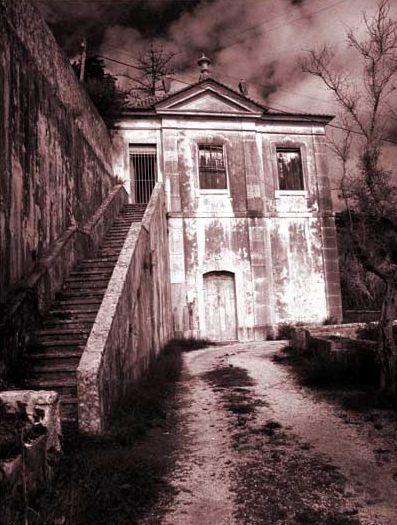
What perfect lodging for Countess Erzsébet Báthory.
The Blood Countess – which just happens to be the very thing that has Ilka out so late. Blood. A new shipment of fresh Romanian peasant blood, arriving out of New York, to be delivered to Air Cargo at the Bangor airport, with of course all the accompanying official documentation, attesting to the shipment’s contents as nothing more than a rather expensive vintage of fine Romanian wine.
Erzsébet steps away from the window and, as she makes her way through the narrow, cluttered, make-shift office into the darken sitting room, she casually reaches out to lift up from the edge of her desk, by the narrow neck, a dark green bottle bearing a Romania label of some obscure winery.
She slowly saunters toward the sofa and its low coffee table. There is a slight squeak and a pop, and the cork comes free from the dark green bottle. She is assailed instantly with the heady scent of blood. It is a good vintage: adolescent, female.
In the dimness of the spare sitting room, its furnishing an odd mix of inexpensive chain store furnishings and discarded, abandoned pieces, perhaps stolen in the night, all of which seem so incongruous furnishing for so ancient an aristocrat, as she pours the thick, crimson liquid into a wine glass taken up just this moment from the coffee table. But, then again, Erzsébet Báthory has had far worse lodgings over the centuries. Being at first a coerced clandestine agent of the enigmatic Diogenes Club before furtively re-establishing her connections to the vast esoteric underground.
The wine bottle now placed beside the glass, she lifts the wine glass and breaths the blood’s aroma. She takes a sip, letting the metallic taste slide sensuously over her palate. She sighs – the blood, though merely room temperature, still gives her that marvelous rush, but it does not alleviate her concern for Ilka. Like a gin runner during the Volstead Act, Ilka had to make these surreptitious trips because she had yet to make a decision as to whether she was in Collinsport to stay or whether she would return to her homeland, or at least Eastern Europe – the final decision having been delayed twice already. Once she would have given it little thought at all – putting as much distance as she could between her and this miserable little sea coast town. But – there was Nicole.
Whereas all her other children, long dead, were but memories – none having ever been turned – Nicole, blood of her blood, was undead. She could see; she could speak to; she could touch her daughter – how could she so easily walk away from such an fortuitous opportunity to build a relationship with her. Ilka understood perhaps even better than she, “There is no decision to be made, Erzsébet, she is your daughter –“
Only Nicole – continues to find some vexing obligation to these Collins’!
How she would much rather take Nicole away from this hovel and show her the world—her world . . . the old world, with all of its grand cities and all of its rich history – all its dark past of which she had been a part.
With a long and languid sigh she gathers herself up into the corner of the sofa – where could Ilka be?
And now they are both late . . .
Only, perhaps, finally, at least he comes. She has suddenly detected the cautious closing of the stairway way leading to the outer corridor; the slightest creak of a floorboard outside her suite of rooms. There were muffled footsteps on the worn carpeting. One set vigilant, the other resolute. She smiled. A man and a woman. The woman she did not know – the man was far too familiar. She takes another sip of the adolescent blood and lets the heady rush run through her.
There is a knock on the door.
One single rap.
“The door is open Edward.” Erzsébet Báthory says over the rim of her wine glass.
Indifferently she watches as the glass door knob turns slowly and the door opens with the creak of a hinge that badly needs maintenance as Count Andreas Petofi, steps into the darken room followed by a young woman, whose very aspect speaks of stealth and violence. She is dressed in black; her head shaven. The Countess likes the look of her skull – it is very sensual.
Clearly yet another bodyguard, Erzsébet thinks, as she watches with amused interest as the young woman remains cautious, remaining ever vigilant – no less that four steps behind the Count as they make their way through the gloom of her ill lit sitting room. Báthory smiles wickedly, “I see you have much improved upon Aristede.”
The Count steps forward out of the shadows, his ungloved hand resting casually in the pocket of his dark suit jacket, “Ah, Aristede.” His eyes appear to slightly twinkle, although it is merely an effect of the light off the lens of his Pince-nez, “Alas, the lad shall ever be my right hand. While she,” He glances at the tall, bald woman, “is my left.”
“The left hand of God?” Erzsébet remarks her hand oh so aristocratically holding the wine glass of blood.
Of what he is capable, over the years, the centuries she has known him, remains as remarkable as his past. The alliances he has made, the alliances he has broken, allies he has betrayed, enemies he has forged – all in his manic pursuit, the insatiable appetite for ever more forbidden knowledge. And yet, he shies away from the very thing he seeks – immortality. The symbonic infection within her – so easily transmitted, and yet, he balks at her undeath. He will have immortality only on his terms. And so she’s alludes to it less in jest – for it is godhood that he truly seeks. She is aware that once again up from the grave he has arisen – but to what new intrigue? She notes now the years have left his face. At first one would have suspected yet another soul transference – and yet, she has seen this face. A youth that all of his resurrections he had not been able to reproduce – until now, for it would appear, he has been successful in resuming once again the visage of himself when he had first taken possession of the body of Victor Fenn-Gibbon, a rather respected theological professor at Cambridge. Over the centuries he had possessed innumerable unfortunates in order to further his stratagems – or to save himself when there had been the inevitable set-backs – but, since his procurement of the hapless vessel of the professor, he has always seemed to find some recourse in returning to Fenn-Gibbon. Which in some ways was fitting seeing as he how was no longer the mere student of the School of Night she had first meet at her Uncle’s court at Niepolomice. Being so careful to remain in the background – introduced as a member of the infamous John Dee’s small entourage, remaining with him and Kelley as they continued their sojourn through Central Europe – but she had sensed his ambition and betrayal. He was one of Raleigh’s scholars – an intelligencer. A spy among spies, furtively reporting to his alchemical masters in England. While Dee and Kelley sought angels – he sought far darker visages.
She had never known his real name.

“You do so flatter me, Countess.” He says with a wry smile.
“Is it not a title to which you have long aspired?” There is no irony in her voice as it was merely a statement of simple fact.
“I must say, you are looking rather astonishing tonight Countess,” he does not dispel the ambition. “But then when are you not?”
“Why is it you only flatter me when I have something you want?”
“Perhaps it is because we have known each other for so long.” Count Petofi’s lips curl into a sardonic smile. He slips his hand out of his jacket pocket as he moves further into the room, “Through rather fortuitous circumstances as well as the adverse. I must say, after the rather elaborate and hapless ruse of The Concordia, I was surprised you asked to meet, rather than transacting through our usual intermediaries.”
She takes a sip of blood and smiles, “Can I not long to see an old friend?” And with a motion of her hand she offers him a seat.
At least he maintained the old world courtesy of standing in her presence and while at least trying to affect a feinted aristocratic etiquette that would have become a count – if he were a count. For she knew there was not a single drop of Hungarian aristocracy within his veins. A graduate of the School of Night, a fraudulent Puritan from the 17th century, a refugee from the New England Witch Panic, a dangerous charlatan, a bon vivant necromancer, a scholar of the Scholomance, and a very wicked wizard, Edward Hutchinson had taken on the duplicitous mantle of Count Andreas Petofi at the behest of Baron Ferenczy – a ruse designed to halt the faint-hearted suspicions of the local authorities, spurred of course by missing peasants and persistent rumors as they proceeded with their experiments.
He takes a seat upon the old church pew she has stolen, somewhat surprised by the sitting room’s rather austere and eccentric ambiance.
“We are rather pensive tonight, are we not, Erzsébet?”
She looks up at him.
“Oh my dear –“ He says suddenly aware of the date. “It is the anniversary.”
Yes – the anniversary. She’s felt the weight of it all evening.
She can remember now the bitter-sweet voice of her cousin’s elder bride, Countess Dolingen, taunting her, “Have we yet made you suffer enough?” The pale sapphire eyes filled with amused malevolence, “No? Well then, as you have murdered so many young mother’s daughters, tonight, you will hunt once more. You will glide through the night shrouded streets of Pairs seeking for her. And when you find her, you will kill yet another mother’s daughter – your daughter! And you will leave her corpse in gutter—like the gutter trash you both are.”
She can hear the motor of the cab idling behind her. The driver dead. The friend dead. The headlights of the car illuminating her as she uses the toe of her boot to roll the body over the edge of the narrow sidewalk to lie in the gutter. Her daughter, Nicole there in the dampness, slowly bleeding out. Her eyes looking up at her—pleadingly so . . .
And he remembers stepping out of the shadows. The look in Erzsébet’s eyes as she snapped her glare upon him. He had seen that absolute look of frustrated rage before. His fingers already working the spell, his lips calling upon his master, calling upon The Darkness – the elder Chaos, whom he was well aware may or may not intercede, depending of course upon his whimsy . . . as they had but a mere split-second now, in which to thwart the Bride’s command, which Erzsébet had been compelled to obey based upon the power of the portrait they used to control her – a split-second in order to save the young woman – to steal back her daughter from that moment in which she would fade forever into that one, last . . . tick . . .
And the night’s dark shadows began to lengthen.
He could feel the power in the air: “Now, Erzsébet! Now!”
And suddenly she sunk her fangs deep into her own wrist, sinking them as deep as she could insert them—and then—with a savage snarl, she ripped away the flesh. Her own dark blood spurting as she hurriedly reached down and lifted Nicole’s head so as to put the torn meat and bloody gush of her wrist to her daughter’s lips – forcing the cold lips to wrap about the angry wound, as suddenly, instinctively, Nicole is cognizant that the blood is the life, and as she began sucking her mother’s blood – drinking deep of her undeath.
And suddenly she sunk her fangs deep into her own wrist, sinking them as deep as she can insert them—and then—with a savage snarl, ripped away the flesh. Her own dark blood spurting as she hurriedly reached down and lifted Nicole’s head so as to put the torn meat and bloody gush of her wrist to her daughter’s lips – forcing the cold lips to wrap about the angry wound, as suddenly, instinctively, Nicole is cognizant that the blood is the life, and as she began sucking her mother’s blood – drinking deep of her undeath.
Erzsébet returned the intensity of her gaze once more upon him; it was the purest countenance of raw rage and utter hatred and no matter how many times he had seen it, it still chilled him, “I will play at this no longer, Edward! Hear me. I shall destroy them all!”
“Yes. But, all in good time, my dear.” He stepped forward curious now to see for the first time his physical grand-daughter – even as death, who had been coming for her sure and certain, was being so roundly told to f**k off by their actions. “All in good time.”
Erzsébet could feel Nicole’s’ hands gripping her arm and wrist, sucking ravenously upon her torn wrist. “We have paid too high a price—and are no closer—”
“But we have discovered that a myth is a lie and there is one miraculous copy remaining—.”
Fangs elongated, her eyes ablaze, she snapped at him incredulous, “And when was that ever a consideration in our plans?”
Only he is busy with a cell phone, dialing Nicole’s guardian – turning to catch a glimpse of a tall well-dressed gentleman in evening clothes watching from the shadows.
Erzsébet looked into the eyes of her daughter – the piteous eyes of the daughter she has never truly known, has only watched from afar, and yet, looking at her she is overwhelmed by an emotion she has never felt—not for Ursula or Pál or Miklós – even as she watches her child’s existence no longer slipping away.
The eyes dilating – transforming. She’s turning even now. “It is always a goddamned book, with you.”
Her voice a harsh snap of anger in the night.
“If you remember my dear.” He said taking a step toward her, “The whole grand escapade, which, ultimately resulted in her . . . very existence—“ he pointed to the young woman sucking the blood from the raw wound of her wrist, “Began with [i[your[/i] desire to obtain The Hawkins Papers. Whereas I,” he places a hand to his chest, “was reticent about the whole of the stratagem from the start . . . and only undertook the little adventure out of consideration for your desires. And so, yes . . . my dear, for her, you are quite welcome.“ He looked at her sternly “And so, for me, discovering there is still an extant 1st edition of the Relics . . . Jules Allard’s very own edition, is sufficient enough for me to declare this rapidly developing fiasco a success. That and the fact that it is infinitely more than obvious – the Brides, know nothing of the Seward Serum, nor, are they aware of what you suspect may have transpired at Hillingham.”
And then he turned away to began talking to the woman on the other end of his call: “Yes, Dr. Hoffman—this is Andreas Petofi . . . “
Her hand slowly turning the wine glass clock-wise and then counter-clock-wise, looking into the thick, crimson liquid, her eyes now having narrowed with her recollection of that night –the constant torture at the hands of Dracula’s Brides. Torture she had knowingly allowed – their damage done, and then, allowed to heal, so as to begin again, and again; the constant state of the regeneration of her hair, as they burned it . . . over and over and over, mocking her. Unconsciously, she brings her left hand upward to touch at the stray strands of hair at the base of her neck. Even with her vampiric regenerative powers they had left her hair so damaged she is now forced to wear if far shorter.
And the Grand Escapade—
A far more elaborate subterfuge – a truly grand deception on quite the Petofi scale – a labyrinthine ruse involving the clandestine intelligence services of Romania, Russia, and London: the Division E of the SRI; the GRU SV-8; MI6, The Diogenes Club, and The Undertaking. She of course serving as the strategic bait – a prize they had known the English could never have allowed the Russians to gain possession of, fearful they were aware, after so many classified leaks, everywhere, Pisces compromised, such that SV-8 may be attempting to emulate their own top-secret, and disavowed, research project, Operation Edom – in order for her to breach the impenetrable Mausoleum of The Undertaking’s Egdon Heath Collection. Bold and daring: entering the inescapable. Going straight for the very heart of the Edom Operation – The Hawkins Papers – unredacted, before that had been given to Stoker to turn the after-action report into a narrative with fictional overtones – a lie to pin it all upon should it become public. Only their plan to purloin them had gone awry owing to Catriona Kaye’s own aberrant use of Edom research – the conception of a child. Her child. Nicole.
“Yes, it is the anniversary. ” Her voice low, filled with a cold vitriol.
“I am sorry Erzsébet, I was sorry then – and, I am just as sorry now.”
Perhaps it was in the tone of her voice, being that she has never been one to conceal her emotions, but, Erzsébet was well aware “The Count’s” bodyguard was become far too tense. The eyes had narrowed; the hand flexing; her heart rate elevated. Erzsébet having already reached out into her mind as she entered – in order to read, what she suspected. The woman is armed: a Colt with silver bullets.
She smiles: they always have silver bullets.
Even Coat’s agent in the park tonight – whom she certainly needs to know more about . . . but, there would be time enough for that later
“And some live still.”
“Yes – less one, of course. She who betrayed her existence to the Brides,” He says with some satisfaction, “Who offered up the information on Nicole – she did not survive her introduction to Aristede’s Dancing Girl.“
And she lifts the glass to him, “If I have not —then I have been remiss, thank you Edward.”
“She may not be by blood – but, by birth she is my grand-daughter.” He replies evenly.
“One whom you attempted to crucify in a cemetery?” She cuts her cold eyes up from the rim of her wine glass.
His bodyguard can not resist the instinctive move of her hand toward he Colt – seeing the expression in those eyes.
A loss of control he would much rather forget than contemplate, “At the time, my dear, I can only truthfully say that I was not quite myself.”
“Books Edward – they are your weakness.” She sighs with a slight shake of her head, “You could not just put it down?”
“The King in Yellow – is not a book – one can just put down. As my adversary well knew.”
“And shooting the daughter? “ She asks, “As I recall, I strongly disagreed with that decision?’
“Come now Countess, I have never faulted your attempts at revenge.”
“Nor, I yours, but – I do know what it is —“
“Do not compare this to Nicole.”
“Did it get the results you intended?” She continues to press the subject, “Did the mother arrive? No—as I said then, I didn’t fault your desire for revenge, but, Catherine is far too wise. She knew precisely who ordered her daughter shot. And why. And for that – we are even now awaiting her response.”
Which only makes her think now of the lateness of the hour – and that Ilka had not returned.
Whereas, he was not at all inclined to discuss the issue further.
Yes, he had attempted to have Jamison St. Clair assassinated – and she having survived the attack – he was ever mindful to do it again. Catherine St. Clair had certainly known her actions would have consequences – if he survived. And now, she knew not only he had survived – but, he was also well aware of just who had sent the evil little package, the disguised copy of the King In Yellow: “Neither of us really need to debate this, now, do we Erzsébet? And so, on a more positive note, I take it that you have it.”
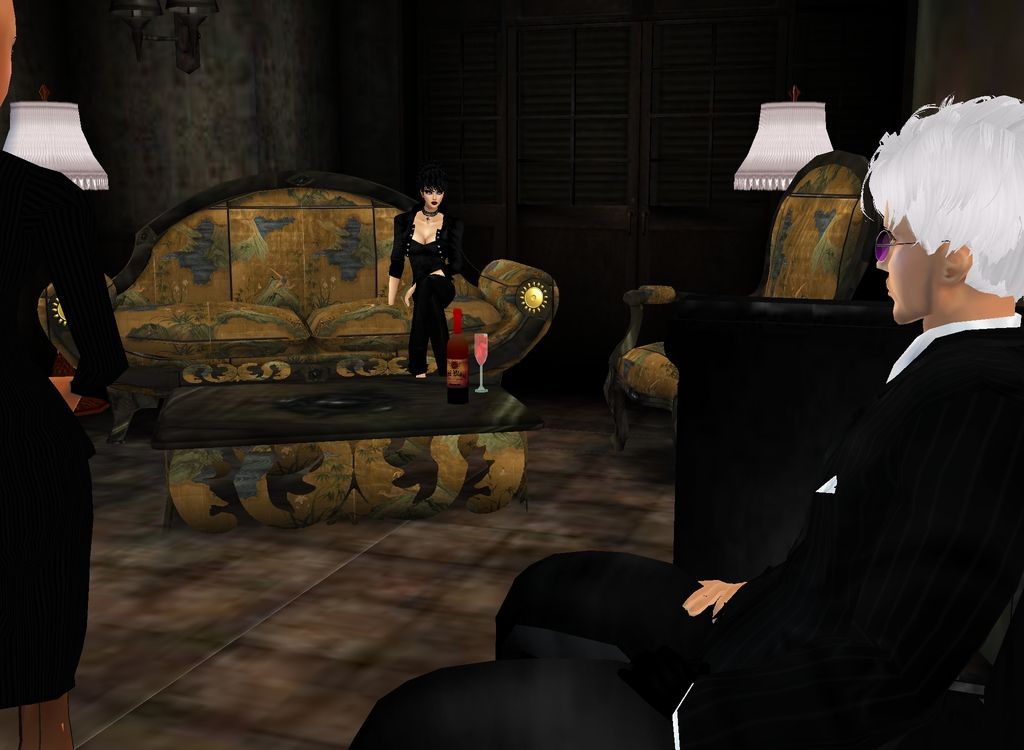
“Whenever have I failed?”
‘There was that time in Paris.” He sits back and crosses his legs, “August, I believe, 1884.”
“Ah, Sebastian Moran . . .”
“And the Box Brothers.” He gives a melodramatic shiver.
Her eyes indicate an sudden amusement, “Ah, yes, The Box Brothers.”
“We do have such a storied past.” He says, “But Countess, the hour does grow late.”
She rises.
The Bodyguard steps closer to the Count.
Erzsébet sits her wine glass down on the coffee table as she steps over to the chair at the end of the sofa and lifts one of a pair of damaged old suitcases. She places it on the seat of the chair, opening it, and reaches inside. She smiles as she can feel the young woman grow tense – her mind now uncertain as to whether or not she should pull the Colt.
Just in case.
Erzsébet removes a very old book from within the folds of the battered piece of luggage and then, turning, quickly tosses it across the room toward the Count.
Petofi, removing his ungloved hand from his pocket, was a bit hard pressed to catch the copy of The Relics of the Anti-Saints sailing his way.
He lifts an eyebrow at the Countess.
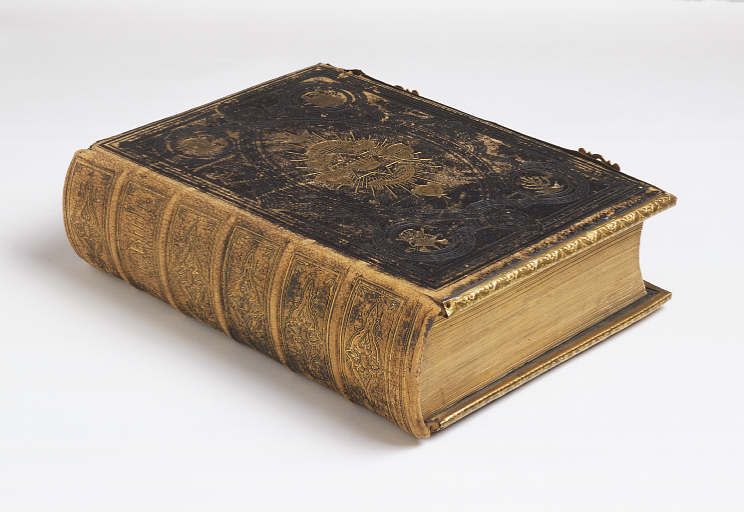
“Lovely.” He says tenderly holding the book.
It was once believed that there were only two copies in existence. The first printing of Allard’s book having been consumed in what the New York constabulary suspected, but could not prove, to have been an arson, which destroyed the whole of the warehouse Black Sands Press had used to store the first run before shipping. Whereas the second had been seemingly systematically sought out and destroyed. There never was a third printing. Franklin Pierce had been warned. Of the two known copies, they were of course both surviving second editions – but, certain bibliophiles spoke in whispers of a legendary 1st edition. Jules Allard’s copy. Amazingly, this alleged copy was rumored to have been in Collinsport in 1840 and was long believed to have been destroyed with all the other curios and artifacts that remained of the infamous Zachery/Stiles incident, which had caused so much death and scandal within the Collins Family. Legendary—this copy which Desmond Collins had purchased for his cousin, the first Quentin Collins, from some obscure book dealer in San Francisco had the subject of myth. It was said to have been owned by some of the most memorable occultists. Petofi had seen it once, long ago, and now his fascination with it could not be concealed.
For all its history, it was in miraculous condition. Other than the fact the golden buckram binding was worn and the cover blacked, by what looks like damage from a flash fire, along with certain fraying about the edges.
“I do so hope you enjoy it, Edward.” Erzsébet sardonically watching him all but caress the volume. A hard smile, which did not conceal the sharpness of her canines, masked the memory of all she had endured, as she had accidently discovered the book’s very existence – for until she had overheard discussion of the mythical 1st edition, there were only the two known second editions – although, that was not why she had furtively allowed herself to be given over to the Brides.
“It is a wonder to behold.” He tells her.
“Best hold on to it as I shan’t be stealing it for you again.”
The silent bodyguard looks at the woman, and then, gazes back to the Count and his new acquisition.
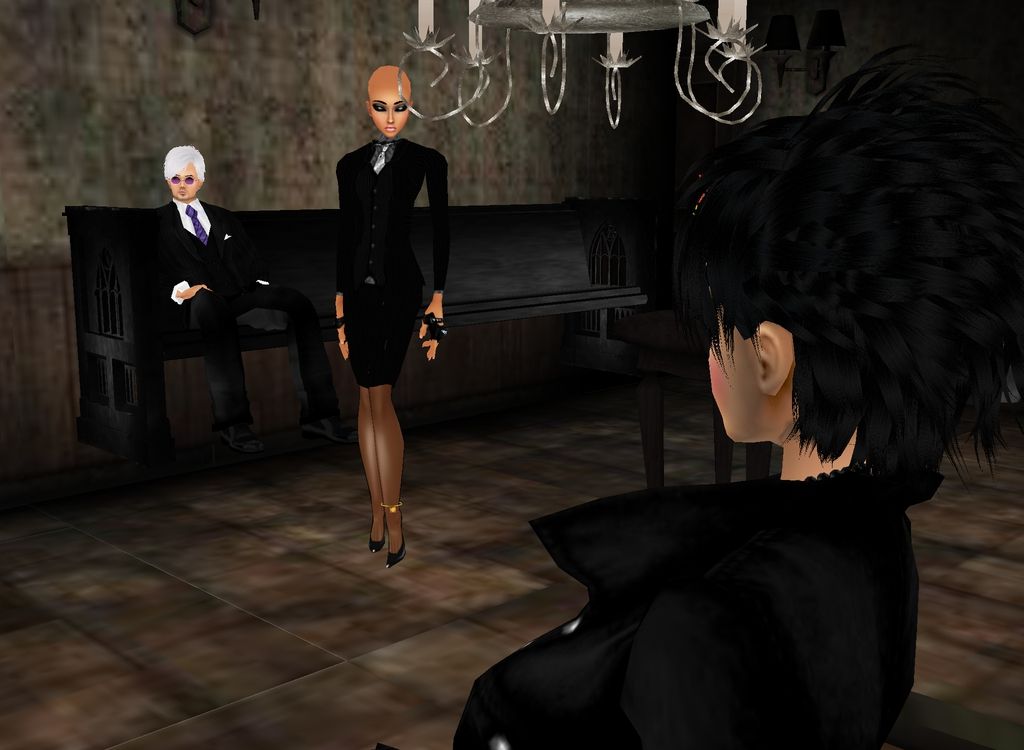
Gently he opens the cover and views the frontispiece and below, the declaration of the volume being a 1st edition.
He turns a page:
PREFACE
I CANNOT permit this work to go to press without premising it with a few words.
When some years ago I first began the work now entitled The Relics of the Anti-Saints, I must admit I was a skeptic as to the world of the arcane, the belief in the occult but the deeper my research excavated the history of what had and is even now transpiring within the seemingly beatific environs of New England the more trepidation I found myself having to overcome. It was with considerable hesitation and diffidence I began the composition of the book you are now about to read. Thus, I must give warning, that everything thus revealed within this volume comes from extensive research and at a very considerable cost – the lives of two of my associates, of whom I held dear – and so, be prepared for one’s perspective of reality and man’s place within it to be forever changed.
Jules Allard – New York, 1834
“Jules Allard, did you ever meet him?” He asks distractedly as he examines the page.
“No.” She replies picking up her wine glass as she returns to her seat on the sofa, “Did you?”
“Sadly, I can’t say I ever had the pleasure. I do understand he was really rather quite a remarkable fellow. Graced with a particular talent, one could almost say an preternatural affability, which, he used with considerable aplomb. From what I have been told, Allard could, with very little effort, get someone to give up their most guarded secrets; and then, when he chanced upon the extremely devious Deacon Snow, he found quite a formidable source of all manner of well kept confidences.” Count Petofi reminisced as he examined the most fastidiously handwritten note in the upper left hand corner of the preface page. ‘The dead travel fast,” in German, which was written to annotate the underlined passage reading: “lives of two of my associates.” He glanced up from the page to look over at formidable Vera Pettigrew, “You see my dear Miss Pettigrew, for all the hustle and bustle, the slight-of-hand, it was never so far from home.”
He then suddenly turns his gaze to Erzsébet, “Oh, I am sorry, I did not introduce you, Vera, this is Erzsébet Báthory . . . a very old acquaintance of mine. Countess, this is Vera Pettigrew.”
Vera arches a brow and inclines her head wordlessly.
Erzsébet nods in acknowledgement.
“Vera doesn’t say much, and as such, usually, you don’t want her to be the one I send to have a discussion.”
Erzsébet lifts her glass in a toast, “Sounds like my kind of a woman.”
Vera Pettigrew nods again.
Erzsébet lifts a brow, “All this hustle and bustle? You say it so dismissively . . .”
“Please, do forgive me, Erzsébet – ” He looks up from the book in all seriousness, “We both are well aware of what I owe you, for all you endured, to not only discover the continued existence of his rarest of volumes, but, where precisely a rather crafty bookhound might be able to sniff out its trail. For that, my dear, I am most humbly ever in your debt.”
“And yet, for all of that, you cavalierly commissioned that odious Corso to steal it from you . . . after having hired him to furtively purloin it for you in the first place . . . “
“One must cast their nets wide in order to see just what they might pull in, my dear.” He looks up from a page with that notorious curl of his lip slowly turning now into a mischievous smile as he continues to gingerly turn a few pages, “And I must say my net has gathered quite the considerable bounty of interest – for which we shall have to wait and see what plays out – ah, yes –” He suddenly interjects turning a page and scanning it, “Edmond Carter’s Invocation of Non-Euclidian Time, and here.” With a mischievous smile as he reads, “Isaiah Mason’s Philtre of the Devouring Worm . . . and, then . . . there is of course, my own contribution.”
“I thought you said you never met Allard.”
“It was during my rather hasty departure from Salem-Village in 1692, I was forced to leave behind not only my library but an unfinished manuscript – “
“He published your manuscript?”
“Bits & pieces, various fragments,” he glances over at her and replies with a sly smile.
“And, that’s what you’ve been looking for?”
“Oh, no, my dear,” He shakes his head, “There is considerably more knowledge contained within this marvelous book.”
She fingers the hair at the nape of her neck, distractedly, “You and Dee and your libraries.”
“Library?” And with his Cheshire smile one would expect him to all but fade away, “Yes—one could very well say this book itself is a library. It contains the thoughts and knowledge, the insights, of some of the most infamous alchemists and illustrious occultists of their day as it has passed from one to another for something well over two centuries, each adding to it their comments, their annotations, their fantastic marginalia – so that this volume has become over the centuries an almost Talmudic work of uncanny research, alchemical experimentation, dark wisdom, horrendous speculations, upon various citations of forgotten lore and forbidden fragments of unholy tablets written long before the advent of man.” As he turned the pages it was evident that many hands had written upon these aged pages in their various scripts and assortment of inks. For the yellowed leaves of the volume held the handwritten notes of Professor Enoch Bowen, annotations by Professor Abraham Van Helsing, marginalia by Arminius Vámbéry, interpretations by Baron Ferencz, comments by Henry Armitage, footnotes by Dominique Provoyeur, as well as the precise and copious commentaries of Professor Elliot Stokes.
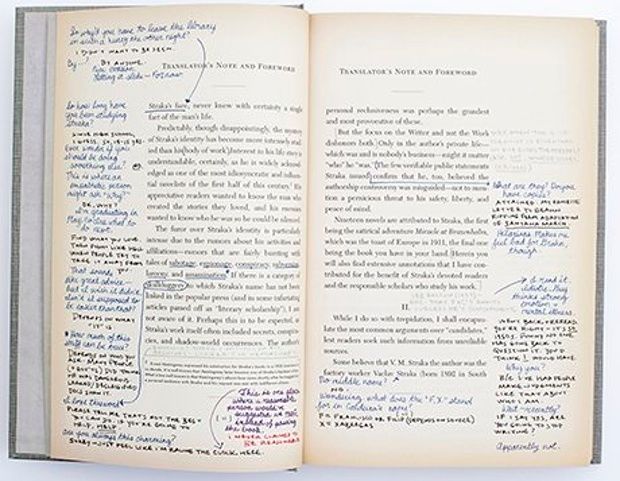
He looks up suddenly to takes note of her glance at a sound outside the window in the street below. “Something upsetting you?”
“No,” She lies and takes a sip of blood – which has grown cold.
He gives her a quizzical look, knowing well that she is lying, for some reason, as he turns a page. Suddenly, his face grows concerned, as he reads an annotation: “Oh, I am going to be in need of the Rose Window.”
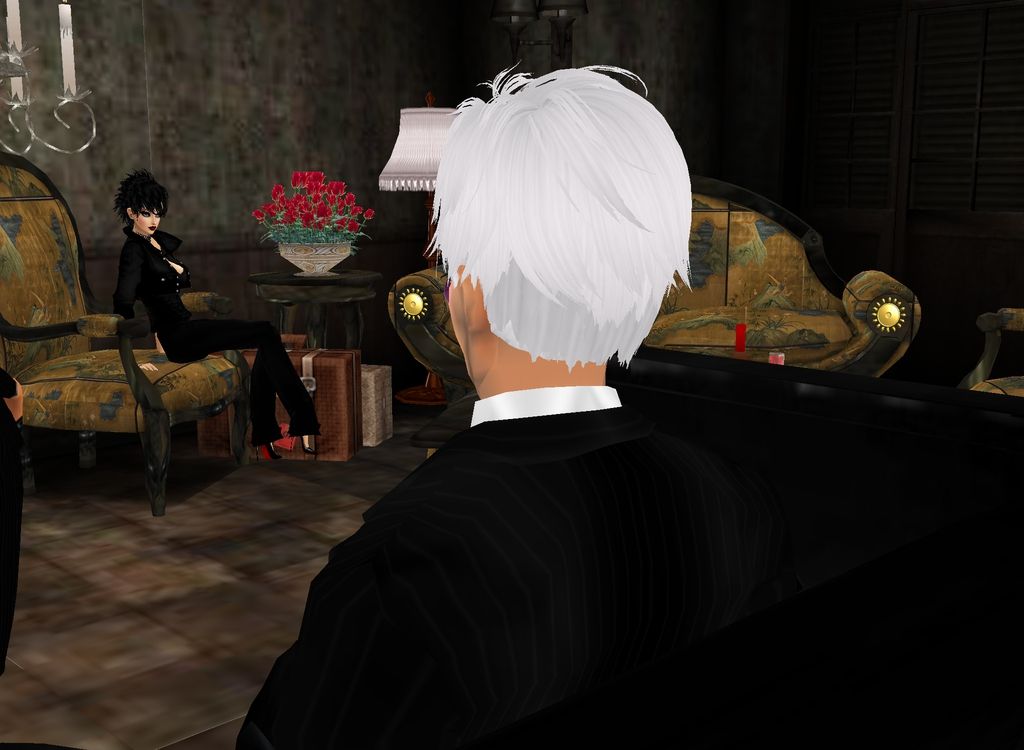
Amusement now fills Erzsébet dark eyes, “Now that is a myth, Edward.”
“Really?”
Erzsébet’s sighs as he should well know: “The very existence of the Rose Window is based upon the premise that Edward Crane would have not only been the architect, but, he would have had to oversee the construction of the Glover House. Whereas everyone knows,” She waves her flute of blood, “Crane lived exclusively in Europe, Edward. He would not have ventured to America, let alone make some rather clandestine sojourn to some small, obscure, little sea-side village like Kingsport.”
Count Petofi sitting at the corner of the old church pew closes the wondrous book and looks at her, “Ah, as you said, my dear, all good secrets, lie somewhere behind the mask of myth . . . as you should well know. I mean you hide behind the one of the most ingenious masks of them all – The Diogenes Club’s The Rehabilitated Countess. It is perhaps, one of your finest works of art.”
“Delivered me out of my silver chains – and with The Hawkins Papers.”
“It has . . . on occasion served us well.” He nods in agreement. “Poor Loman—they were so certain he was not only the thief but their mole.”
She smiles wickedly, “My very first assignment from Kaye.”
“As I remember you flushed him out and they gunned him down while trying to cross from Hungary to Romania.”
“It was St. George’s Day. A beautiful full moon that night.” She remembers his body floating face down, the red rivulets running in the stream, as the Romanian border guards had cut short his desperate but hopeless flight.
“Well, those were the days.”
Yes, but who was really deceiving whom she now reflects: Vanessa Coats, as Catriona Kaye before her, for all their denial, their hypocritical, sanctimonious supposed righteousness, were very much aware of her continued association with the black-market occult underground she had founded decades ago. Kaye, the most devious woman she had ever met, had from the very beginning of their relationship, allowed her to do whatever she wanted . . . so long as it served her purposes – always secure in the fact that her hand ever tightly held the leash on her daughter, Nicole, with which to reign her in.
If it were possible she was even more deceitful than Count Andreas Petofi . . . the wicked Edward Hutchinson.
But her reminisces quickly give away once more to her concern regarding Ilka, who was now long overdue. She wished her visitors to be gone so that she could become a part of the night in order to assure herself that all was well with Ilka.
Of course, Erzsébet Báthory was unaware that at this very moment Ilka was carefully diverting her route away from the carnival of the flashing lights and yellow crime scene tape just beyond the bend of Temperance Vale Road. The road she just happened to use as did the bootleggers of old to smuggle Báthory’s shipments of Romanian blood.
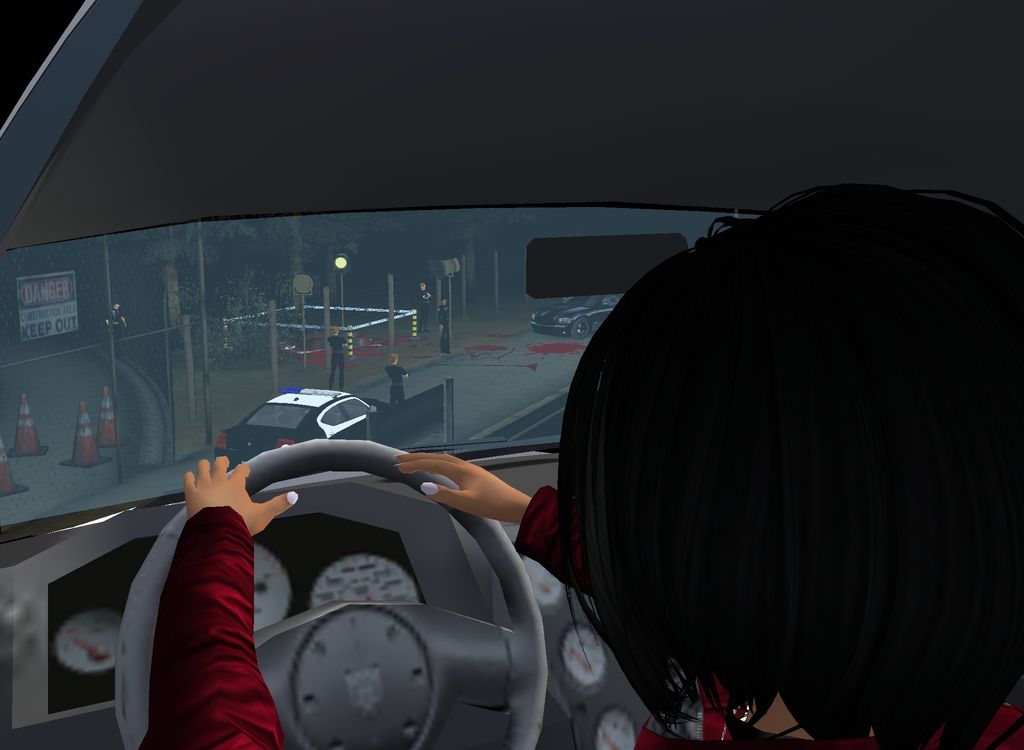
Resting her head on the back of the chair, Erzsébet suddenly breaks the momentary silence, “So—for the sake of discussion, Edward; if it were to exist, the Rose Window, then it would have had to have been removed from Kingsport – and it’s removal very carefully concealed. Workmen and those transporting it . . . “
“Murdered.”
“That’s certainly how I would have done it.”
“I quite agree. The best of times would have been amid the resulting confusion surrounding Dudley Ropes Glover’s disappearance.”
“And where, Edward, would you propose it to be? If—it were to exist.”
“Seeing as how Collinsport is the Sister City to Kingsport, where better to hide it.”
“Oh, where else indeed.” She says now rather absently.
Petofi is aware that her thoughts are as from the moment he arrived very much divided – what has her so perplexed? More importantly whatever it was . . . should he be concerned?
She turns her icy glare back upon him, “And you truly have need of the window?”
“Yes. If half of what I suspect is slouching its way toward Collinsport then I have need of her.”
“Your other daughter?”
He glances up over the rim of his glasses.
Erzsébet sets her glass down on the edge of the coffee table, elbow upon her knee as she leans forward, eyes narrowing: “Edward I do not understand your fascination with this . . . town. And the Collins Family.”
“And you remain here in this hide-away, abandoned apartment because you like the décor? Or is there some other fascination you have . . . with this town?”
She lifts an eyebrow and glares, “So. It is true, she is that much more powerful than you?”
“Yes, I dare say she is.”
“And yet, you need The Rose Window to locate her, because, what, she is in hiding?” She pushes the point. “From whom – you?”
“I regret that both of my daughters did not receive the fatherly devotion they may have deserved.”
She all but laughs, “And you are going to make up for that at this late date.”
“We are both trying to make amends it would seem, my dear.”
“Yes, well, a point well taken.” She runs a languid hand now back through her short, raven hair, “So, Edward—as to my fee for this little favor.”
“It will be as we agreed.” He lifts the book, “Charles Delaware Tate, I will find him for you.”
“As to the window, should I find it – we will discuss terms.”
“As always my dear, as always.”
Cue Music End of Episode
